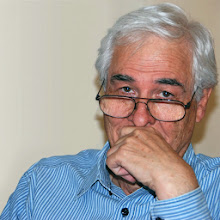THE BURDEN OF SKEPTICISM
by Carl Sagan
first published in Skeptical Inquirer, vol . 12,
Fall 1987
What is Skepticism? It's nothing very esoteric. We encounter it every day. When we buy a used car, if we are the least bit wise we will exert some residual skeptical powers -- whatever our education has left to us.
You could say, "Here's an honest-looking fellow. I'll just take whatever he offers me." Or you might say, "Well, I've heard that occasionally there are small deceptions involved in the sale of a used car, perhaps inadvertent on the part of the salesperson," and then you do something.
You kick the tires, you open the doors, you look under the hood. (You might go through the motions even if you don't know what is supposed to be under the hood, or you might bring a mechanically inclined friend.) You know that some skepticism is required, and you understand why. It's upsetting that you might have to disagree with the used-car salesman or ask him questions that he is reluctant to answer. There is at least a small degree of interpersonal confrontation involved in the purchase of a used car and nobody claims it is especially pleasant. But there is a good reason for it -- because if you don't exercise some minimal skepticism, if you have an absolutely untrammeled credulity, there is probably some price you will have to pay later. Then you'll wish you had made a small investment of skepticism early.
Now this is not something that you have to go through four years of graduate school to understand. Everybody understands this. The trouble is, a used car is one thing but television commercials or pronouncements by presidents and party leaders are another. We are skeptical in some areas but unfortunately not in others.
For example, there is a class of aspirin commercials that reveals the competing product to have only so much of the painkilling ingredient that doctors recommend most—they don’t tell you what the mysterious ingredient is—whereas their product has a dramatically larger amount (1.2 to 2 times more per tablet). Therefore you should buy their product. But why not just take two of the competing tablets? You’re not supposed to ask. Don’t apply skepticism to this issue. Don’t think. Buy.
Such claims in commercial advertisements constitute small deceptions. They part us from a little money, or induce us to buy a slightly inferior product. It’s not so terrible. But consider this:
I have here the program of this year’s Whole Life Expo in San Francisco. Twenty thousand people attended last year’s program. Here are some of the presentations: “Alternative Treatments for AIDS Patients: It will rebuild one’s natural defenses and prevent immune system breakdowns—learn about the latest developments that the media has thus far ignored.” It seems to me that presentation could do real harm. “How Trapped Blood Proteins Produce Pain and Suffering.” “Crystals, Are They Talismans or Stones?“ (I have an opinion myself.) It says, “As a crystal focuses sound and light waves for radio and television”—crystal sets are rather a long time ago—”so may it amplify spiritual vibrations for the attuned human.” I’ll bet very few of you are attuned. Or here’s one: “Return of the Goddess, a Presentational Ritual.” Another: “Synchronicity, the Recognition Experience.” That one is given by “Brother Charles.” Or, on the next page, “You, Saint-Germain, and Healing Through the Violet Flame.” It goes on and on, with lots of ads about “opportunities”—ranging from the dubious to the spurious—that are available at the Whole Life Expo.
Subscribe to:
Post Comments (Atom)





No comments:
Post a Comment